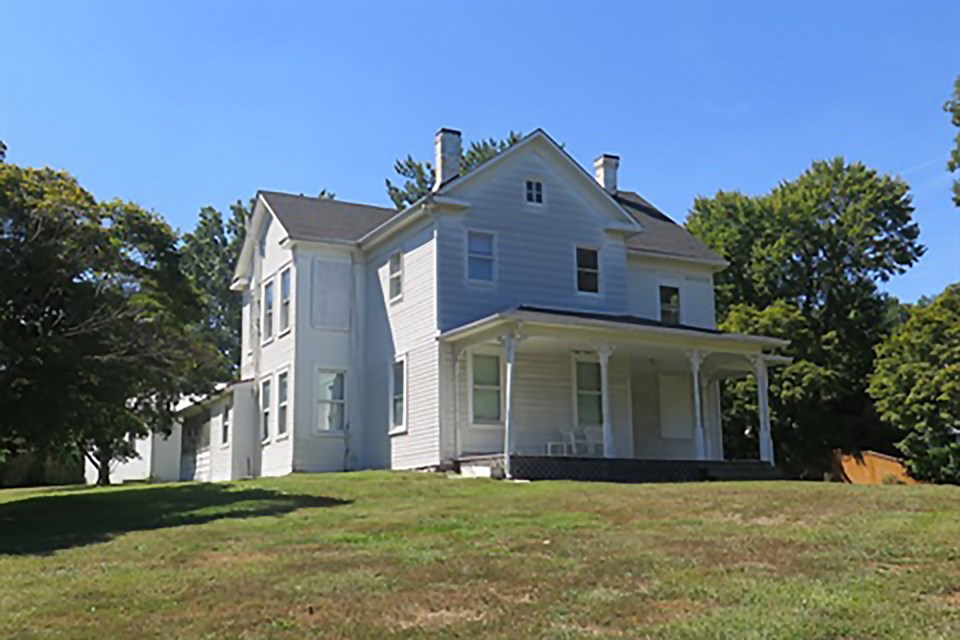The near quarter-century odyssey to find a new use for the former Reevesland farmhouse in Arlington’s Bluemont neighborhood is about to come to a conclusion.
County Board members on July 22 are expected to formally assign title to the property, which the government has held for more than two decades, to Habitat for Humanity of Washington D.C. and Northern Virginia.
That, in turn, will pave the way for the property at 400 North Manchester St. to be renovated, expanded and used as a group home for those with intellectual challenges, and will end a nearly quarter-century saga where the use of the property effectively has remained in limbo.
Habitat’s plans call for a two-story addition on the south side of the property and a one-story addition at the southwest side, which combined with the main house will provide for seven bedrooms and make the property compliant with Americans with Disabilities Act (ADA) requirements. Arlington County Board members on July 22 plan to allocate $2.5 million in federal block-grant funding to support the initiative.
The farmhouse, outbuildings and land were acquired by the county government for $1.8 million shortly after the death of its last owner, Nelson Reeves. Reeves, who died in 2000, had been born in the house 99 years before and for much of his adult life operated the site’s dairy farm, the third generation of ownership dating back to the 1860s.
For years after the purchase, the property languished, with the county government seemingly unable to decide what to do with it. After three years of discussions, the county government and Habitat for Humanity in early 2020 inked the letter of intent to transform the property into a group home for L’Arche of Greater Washington, but the arrival of COVID just weeks later sent that concept into limbo.



